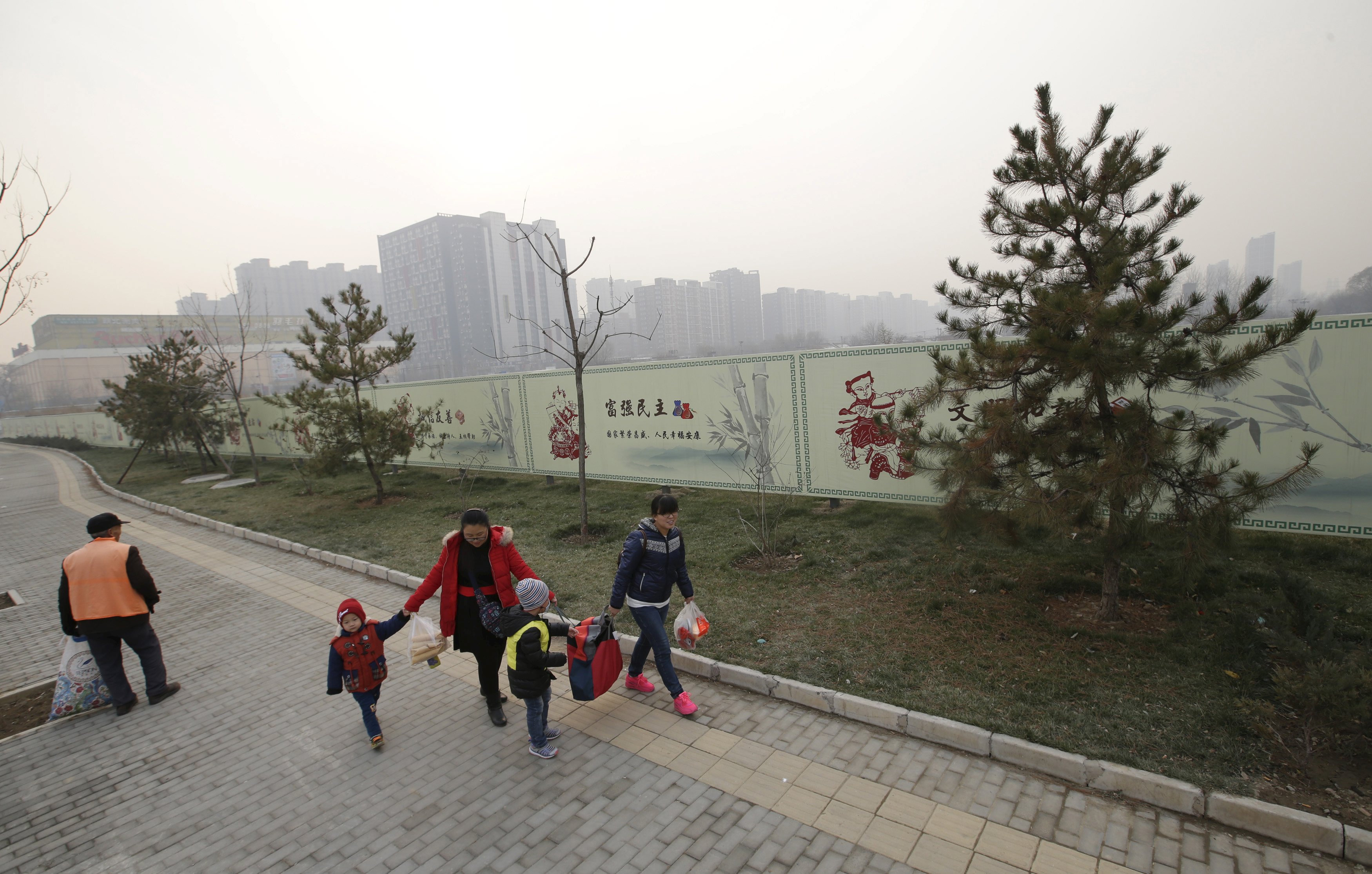In the Chaoyang district of northeast Beijing, a nondescript wall covered in patriotic posters protects one of the city's most valuable treasures: a dirt field containing nothing but a few scattered trees.
Last month the block sold for 3.3 billion yuan ($515 million), according to Beijing Municipal Bureau of Land and Resources data, meaning the cost to the developer of each apartment built will be above the price at which nearby homes currently change hands, once a commitment to build a quota of affordable housing is factored in.
"The flour is more expensive than the bread," said Guo Yi, market director at Yahao, a real estate consulting agency in Beijing, using a Chinese proverb to describe how undeveloped land in some prime locations has become more expensive than second-hand apartments. "We see increasing risks."



